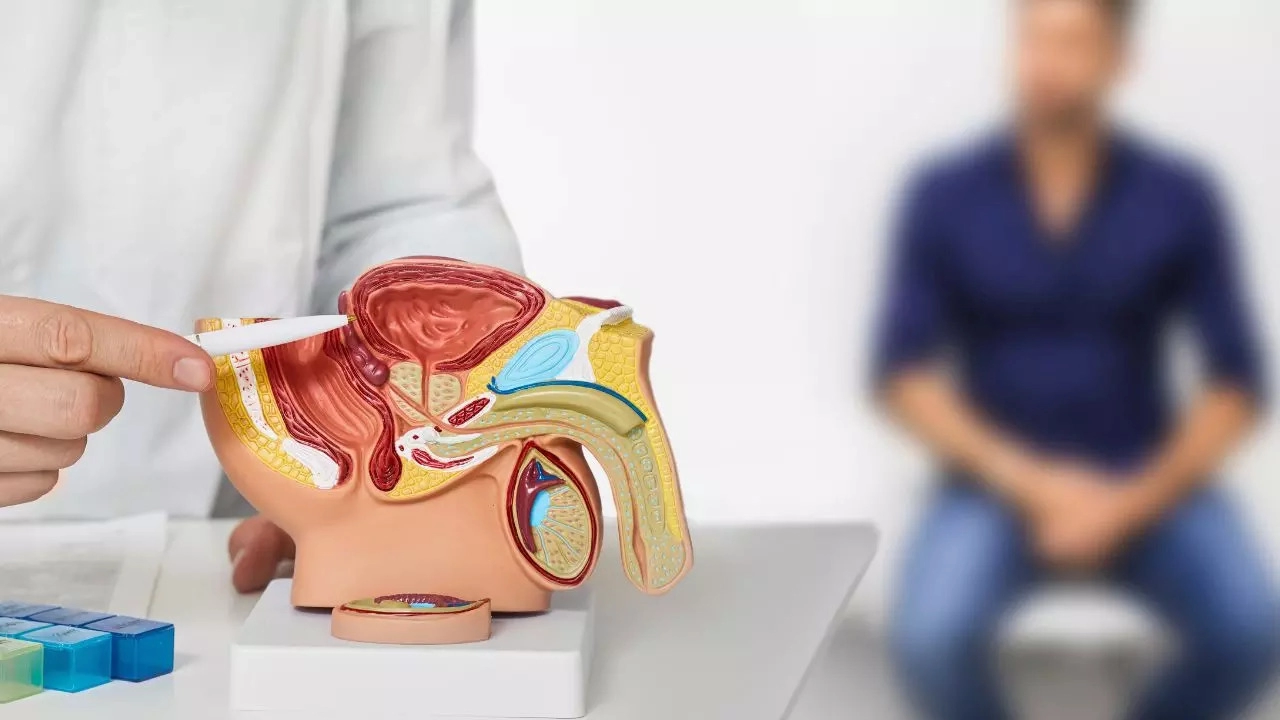Debosmita Ghosh • 18 Sep 2024
Prostate Cancer Incidence To Surge In India By 2040; Expert Shares The Contributing Factors, Impact And More

Prostate Cancer Incidence To Surge In India By 2040
Prostate cancer is a cancer that develops in the prostate. Abnormal cells start to grow in the prostate, which is a small walnut-shaped gland in males that produces the seminal fluid that nourishes and transports sperm. World Cancer Research Fund International says that prostate cancer is the second most common form of cancer in men and the fourth most common cancer across the globe. “There were more than 1.4 million new cases of prostate cancer in 2020.”
A recent study published by the Lancet projects that the number of new cases of prostate cancer annually will rise from 1·4 million in 2020 to 2·9 million by 2040. The report also states that the projected rise in prostate cancer cases cannot be prevented by lifestyle changes or public health interventions.
Dr Tejas Mistry, Lead Urologist at Bhailal Amin General Hospital says that there’s an urgent need for a comprehensive approach to address this growing concern. He adds, “Understanding the factors contributing to this surge, its potential impact, and the strategies required to combat it is crucial for public health planning and intervention.”
Key Contributing Factors
Dr Mistry shares the factors that are driving the anticipated increase in prostate cancer cases. Check them here.
Ageing Population
- Demographic Shifts: India’s population is ageing rapidly with the proportion of elderly individuals increasing. Prostate cancer predominantly affects men over the age of 50, making the ageing demographic a significant factor in the rising incidence.
- Longevity: As life expectancy improves, more men are living long enough to develop prostate cancer, which is a disease largely associated with older age.
Lifestyle and Environmental Changes
- Diet and Nutrition: Modern dietary habits, including high consumption of processed foods and low intake of fruits and vegetables, have been linked to increased cancer risk. Diets high in saturated fats and low in fiber may contribute to prostate cancer development.
- Physical Inactivity: Sedentary lifestyles and lack of regular physical exercise are associated with a higher risk of several types of cancer, including prostate cancer.
Increased Awareness and Improved Detection
- Screening Practices: Advancements in diagnostic technologies, such as prostate-specific antigen (PSA) testing and magnetic resonance imaging (MRI), have led to increased detection of prostate cancer. While these technologies help identify cancer earlier, they also contribute to higher reported incidence rates.
- Awareness Campaigns: Greater awareness about prostate cancer symptoms and screening has led more men to seek testing, resulting in earlier and more frequent diagnoses.
Impact of Rising Incidence
The projected increase in prostate cancer cases will have several profound implications:
Healthcare System Strain
- Resource Allocation: An increase in prostate cancer cases will strain healthcare resources, including diagnostic facilities, treatment options and healthcare professionals.
- Economic Burden: The cost of treatment, including surgery, radiation therapy, hormone therapy, and ongoing monitoring, will place a significant financial burden on patients, families and the healthcare system.
Quality of Life
- Physical Health: Prostate cancer and its treatments can significantly impact a patient’s quality of life, leading to issues such as urinary incontinence, sexual dysfunction, and fatigue.
- Mental Well-being: The emotional and psychological effects of a cancer diagnosis, including anxiety, depression and stress can affect patients and their families.
Strategies for Addressing the Surge
Dr Mistry said that the projected surge in prostate cancer incidence in India by 2040 is a critical issue that demands immediate and coordinated action. He added, “By focusing on public awareness, enhancing screening programs, investing in research, and building robust support systems, we can mitigate the impact of this rising health concern.”
Get Latest News Live on Times Now along with Breaking News and Top Headlines from Health and around the world.